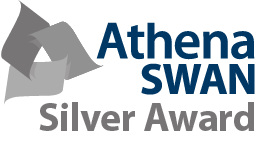Academics wishing to work beyond retirement age
The Head of Department is responsible for the retirement process. The Head of Department will arrange a consultation meeting with each academic two years before their scheduled retirement date.
There are three main options for working beyond retirement age, which are outlined below. The first two options are addressed by the University policy and the third is not.
The University policy can be found at: https://www.hr.admin.cam.ac.uk/policies-procedures/1-retirement-policy
The University policy takes precedence if there is any discrepancy between the policy and the options outlined below.
Option 1. Voluntary Research Agreement:
-
is the simplest option, because it requires no funding and avoids the potential tax problems of earning income while drawing a pension,
-
requires that the retired academic works as a volunteer without any salary/stipend/fees from the University (except reimbursement of allowable expenses if appropriate and agreed),
-
allows the retired academic to be a Co-Investigator on research grants and support research/teaching work in the Department,
-
requires the Head of Department to submit the relevant form(s) to the School of Technology.
Option 2. Employment as a member of contract research staff for a fixed term, which:
-
is approved centrally only in exceptional cases, when the academic is uniquely placed to bring significant benefits to the Department’s academic community e.g. it is not enough for the academic to plan to do high-quality funded research; the academic must plan to make a contribution that no other academic could make, that no one else could be recruited to make, and that helps colleagues further their research and careers,
-
must be funded by grants,
-
allows the academic to have Principal Investigator status providing the fixed term covers the duration of the grant,
-
can create tax complications with regard to pensions, which are confidential and so specific to individuals that the academic must consult pensions administrators directly,
-
requires the Head of Department to decide whether to support the case and make a submission to the Retirements Central Approval Committee via the School of Technology.
Option 3. Consultancy, which:
-
requires the retired academic to join or create a consulting firm, because the Department cannot pay a private individual as a consultant,
-
requires the relevant Principal Investigator to ensure that the use of the firm is permitted by the research grant sponsor’s rules, that the costs are allowed on the grant, and that our purchasing policy is followed (i.e. the consulting firm is set up on the purchasing system and tendering process is followed if required),
-
requires the relevant Principal Investigator to make the case for visitor status, which will involve a request to see that the consulting firm carries the appropriate insurance and nomination of a source of funds for bench fees if applicable,
-
can create tax complications requiring the retired academic to seek professional advice.
Once the plan is agreed after the consultation, these plans need to be shared by the Head of Department with the Department’s HR Office and Director of Research.
Grant applications must be designed in full knowledge of the plan to ensure that funding can flow as needed. Grant applications must clearly disclose the anticipated status of the academic e.g. if the academic is planning to retire and continue as a volunteer, then this must be spelt out clearly.
An academic may change their plan in later consultations, but should be aware that it is likely to be impossible to change grant applications that have been dispatched or research grant awards that have been signed i.e. funding may become locked into the wrong model.

